New Book Recommendation 丨 Yu Guanying's "Tradition and Famous of Poetry"
Author:Bookstore Time:2022.09.19

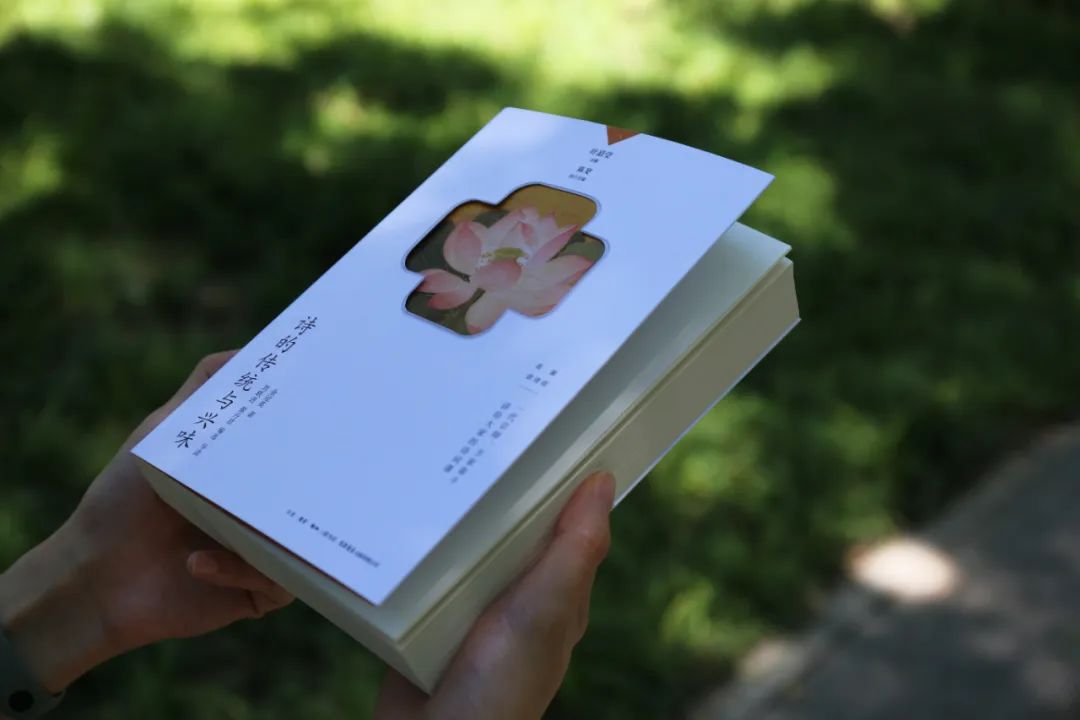
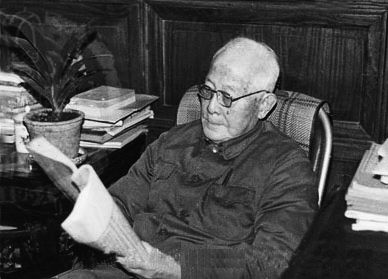
Mr. Yu Guanying takes photos in his later years
Recommended new book
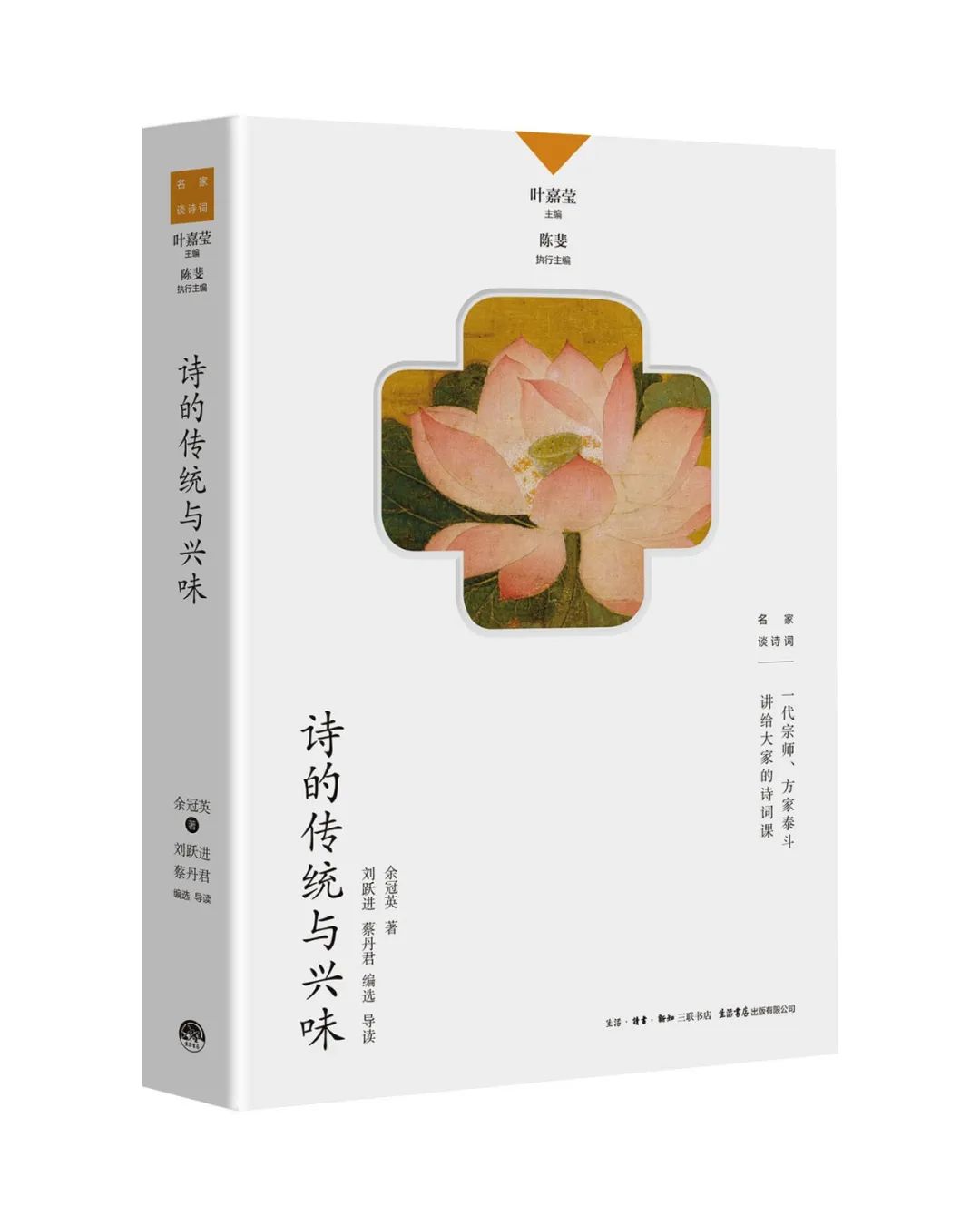
"The Tradition and Express of Poetry"
Yu Guanying
Liu Yuejin Cai Danjun edited, Guide
ISBN: 9787807683438 Price: 68.00 yuan
Life · Reading · Xinzhi Sanlian Bookstore Life Bookstore Publishing Co., Ltd.
brief introduction
When it comes to Yu Guanying, an expert in Chinese classical literature research, many people first think of the "Selection of the Book of Poetry" and "Lefu Poems" he chose. In the classic selection, he attaches great importance to the poet's writing personality and the artistic characteristics of his poetry, and strives to analyze the language structure of poetry, combining the popularization of literary classics and promoting Chinese education. In addition to the selection, he also wrote a lot of poems, or the origin of the development of poetry, or analyzing specific poetry works.
This book is the essence of Yu Guanying's poetry research and selection. There are more than thirty articles. It is divided into three parts: the source of mirror poems, reading poetry and doubt, and poetry selection. Research experience, insights and contributions.
About the Author
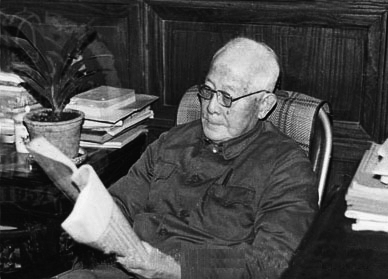
Yu Guanying (1906-1995)
Yangzhou, Jiangsu. In the early years, he was studying at the Chinese Department of Tsinghua University and stayed in school after graduation. During the War of Resistance Against Japan, he was a professor of Southwest United University and edited "Guowen Monthly". Since 1952, he has been a researcher at the Institute of Literature of the Chinese Academy of Sciences. Mainly engaged in ancient Chinese literature research, including "Han and Wei Six Dynasties Poetry", "Selection of Poetry", "Selection of Lefang Poems" and "Selection of the Three Cao Poems".
Introduction to Editor, Guide Reader
Liu Yuejin, born in 1958, was born in Baicheng, Jilin. Member of the Chinese Academy of Social Sciences, deputy director of the Ministry of Literature and Philosophy, and researcher of the Institute of Literature, Editor -in -chief of Literature Review, "Chinese Literature Yearbook", also served as the president of the Chinese Literature History Society, and a member of the leading group of ancient books and publishing publishing planning. He is the author of "Qin and Han Literature Geography and Literary Distribution", "The Chronicles of Qin Han Literature", "The General Collection of Gate Valves and Literature", and "Middle Literature Literature" and so on.
Cai Danjun, born in 1981, is from Zhuzhou, Hunan. Doctor of Chinese Department of Peking University is currently an associate professor at the School of Literature of Renmin University of China. "Lonely", "See Nanshan: History of Poetry Poems" and so on.
Book shadow display
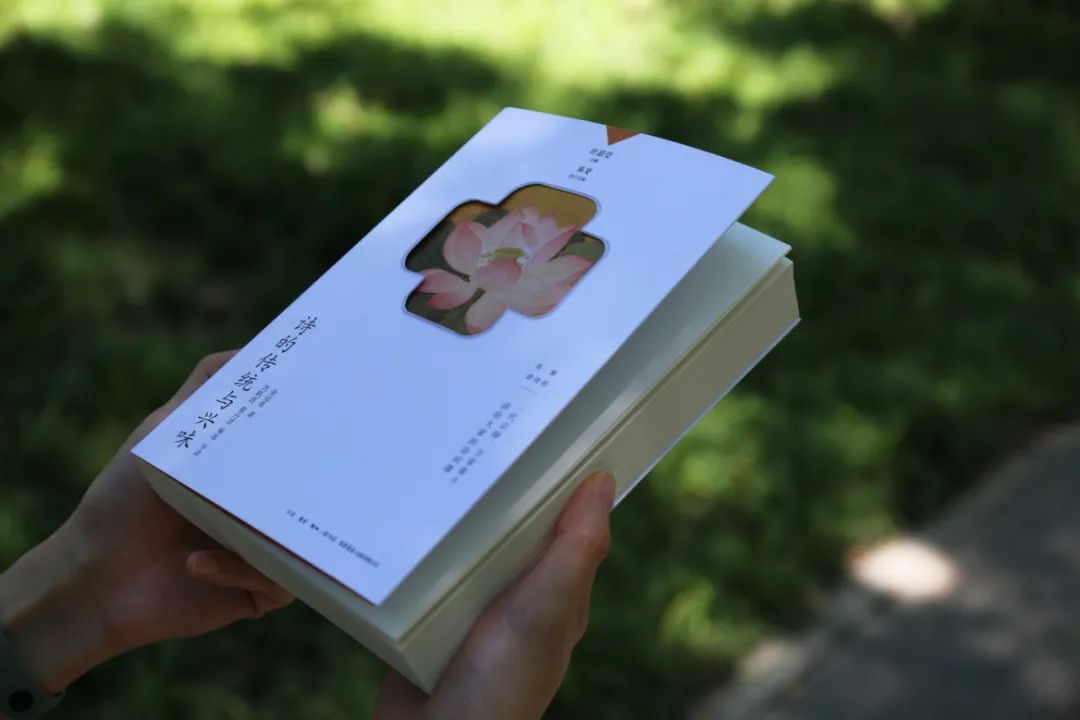
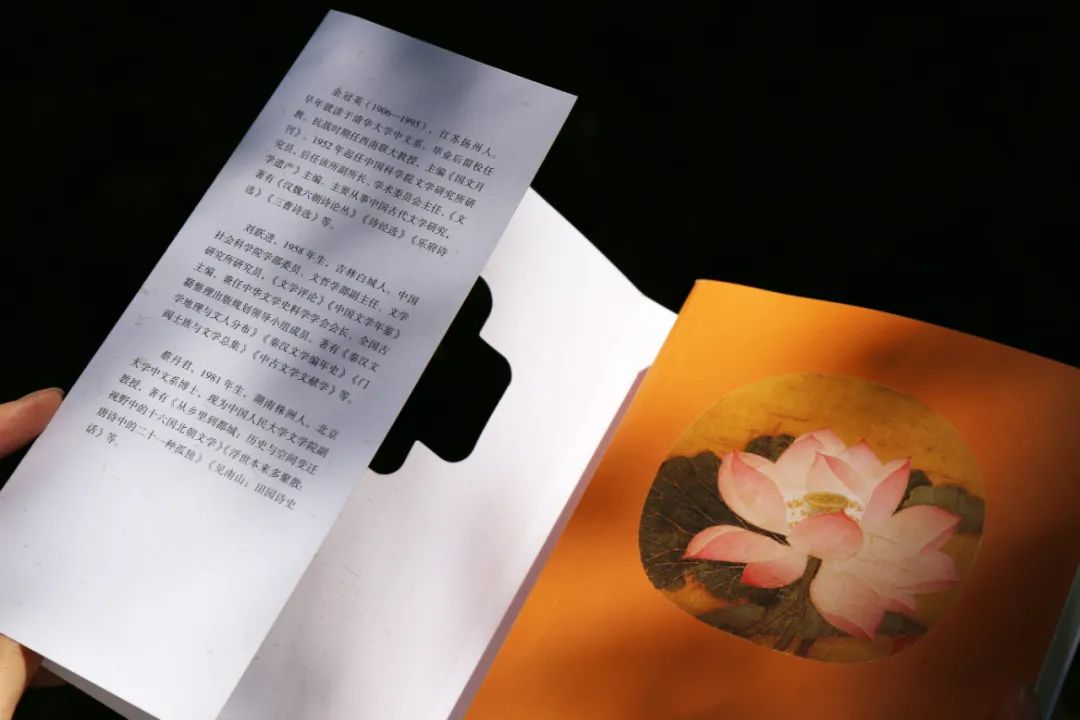
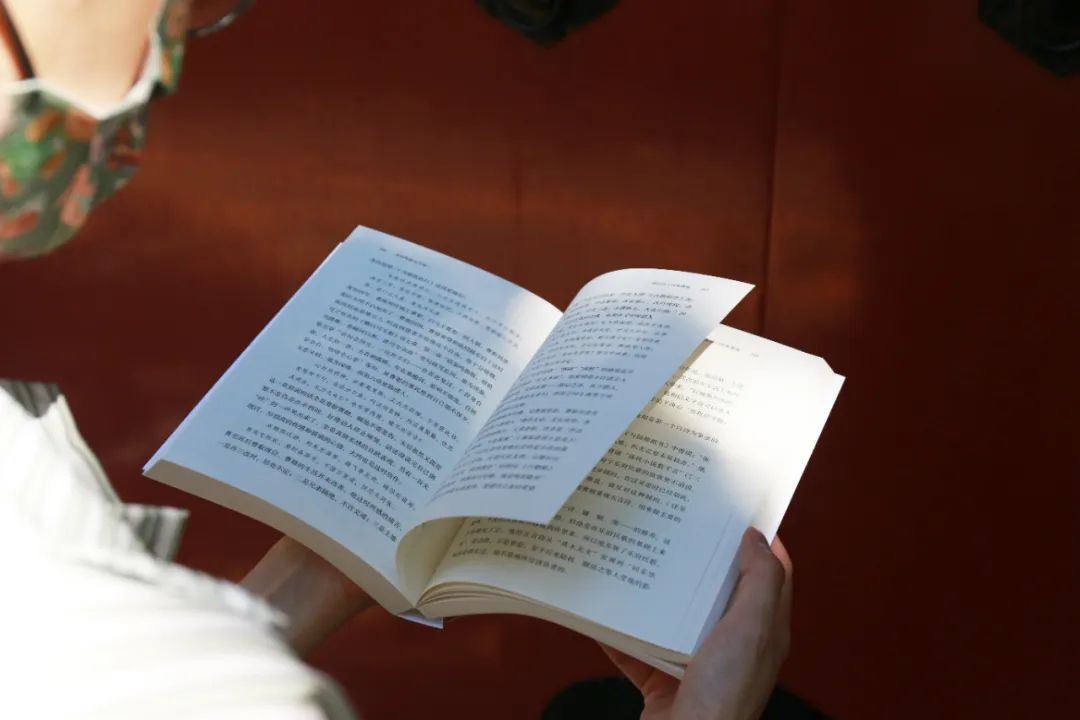
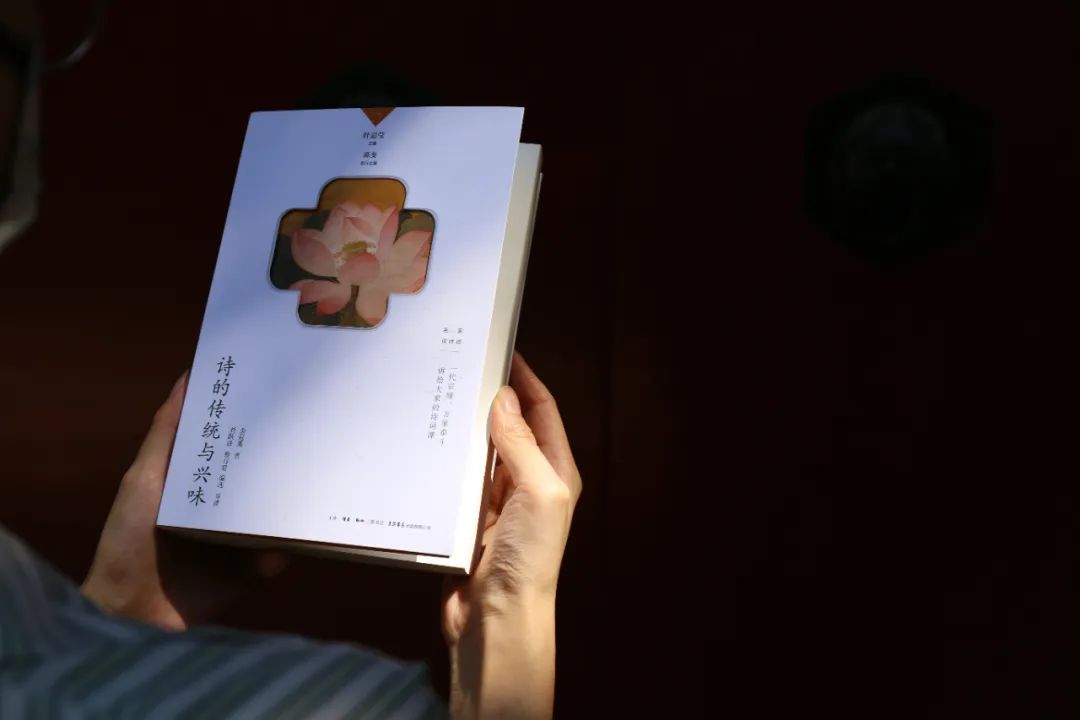

Recognize the two -dimensional code to buy books
Table of contents
Introduction Liu Yuejin Cai Danjun
Poetry
Foreword of "Selection of Poetry"
"Selection of the Sixth Dynasties of the Han and Wei Dynasties" Foreword
"Selection of the Three Cao Poems" preface
Foreword of "Left Poetry"
New Theory of Seven -character Poems
Discussion on the origin of Qiyan Poems
Answer for men and women in Wu Shengge
Several issues of Tang Shi Development
Preface of "Analysis Dictionary of Ancient Chinese Landscape Poems"
"Ancient Love Poetry Appreciation Dictionary" preface
The achievement of ancient Chinese folk songs
Reading Poetry
About the change of "Poetry"
Several issues about the translation of "Chen Feng Zhulin" today
Some of the issues of "Book of Songs · Putan" and Le House "Peacock Flying Southeast"
"Book of Songs · Zheng Feng · John Zhongzi" Yuefu Xinyin
Patching and division of Lefu Ge Ci
Four words, five words and seven words
Bonds in the Han and Wei Poems
Cao Cao's two poems
Jian'an poet representative Cao Zhi
On Cai Yan's "Sadness and Audit Poems"
Saying "the boy has no official position, Yi Guanshi Luoyang"
About "Peacock Flying Southeast" suspicion
Say Bao Shi
"Ledu Poetry Collection" writer's last name
Talking about "Xizhou Qu"
Li Bai Memorial Museum Establishment Memorial
Ten poems
Poetry selection
"Book of Songs" today translates six articles
"The Book of Songs" translates six songs today
Hanyu Ge Liuqu Note
"Nineteen Poems" Note
Four bets of "Better Poems"
Ten bets of Bao Zhao Shi
Wonderful Digest
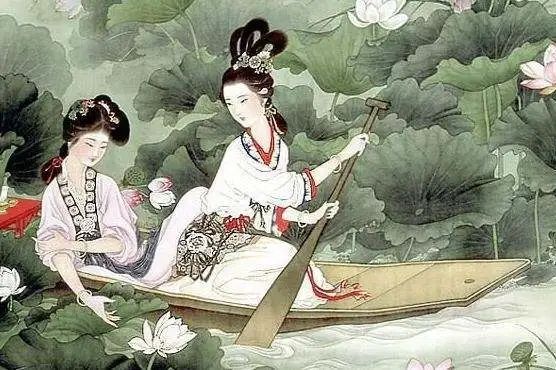
Talking about "Xizhou Qu"
Text | Yu Guanying
Yi Mei went down to Xizhou, and folded Mei to Jiangbei.
Single shirt apricot red (one "yellow"), double crow chicks.
Where is Xizhou? Two paddle bridges.
The sun and twilight flew, the wind blowing the black trees.
Under the tree is in front of the door, and the door is dew.
Open the door Lang, go out to pick red lotus.
Cai Lotus Nantang Autumn, the lotus is overnight.
Lotus seeds lowered, lotus seeds were like water.
In the lotic sleeves, the lotus heart was completely red.
Yi Langlang didn't go up, looking up at Feihong.
Hongfei Manxizhou, Wanglang Shangqinglou;
Lou Gao couldn't see it, and he was doing his head.
The twelve songs of the stems, the hands are bright as jade.
The rolling curtain is high, and the seawater shakes green.
"The sea water dream is leisurely, and I am worried.
Nanfeng knows me, blowing dreams to Xizhou. "
The above song "Xizhou Qu", "The Collection of Ledu Poetry" was collected in the miscellaneous song, entitled "Ancient Victory". "Yutai Xin Yong" is used as a flooding poem, but Song is not carried. The ancient poems of the Ming and Qing dynasties were selected or subject to "Jin Ci", or they were attributed to Emperor Liang Wu. This poem may be originally a "street Mo rumor". After being modified by the literati, Guo Maoqian listed it in the ancient words and must have it. Guo Shu had never indicated the era of this poem, and he guess it may be at the same time as Jiang Yan and Emperor Liang Wu. We can't watch the songs of "Zi Ye". "Xizhou Qu" naturally occurs later, saying that it is promoted, and it seems to be too early. As for the area of the emergence, the Xituge of the Qing Shangqu is the same. From Wen Tingyu's "Xizhou Qu", "Xizhou Wind is good, see Wuchang Tower" can be pushed.
The surface of this poem seems to be connected by several quatrains, in fact, two sentences. Because "word -of -word" or "hook sentences" are used to produce a special rhythm, there is a special posture. "Ancient Poetry" said that it "swaying and returning", "Ancient Poetry" said that it "continuously lives, connects to the lody, swaying endlessly, and the emotions are getting more." This is something every reader can feel. However, if there are some sentences, if the meaning is broken, the clouds in the poem cannot be clear at a glance. The reader understands it. It is necessary to use a bit of guessing, and the explanation is different. Some people say that this poem is a combination of several short chapters, and the content may not be complete and unified. I dare not believe this, because the beginning of the poem mentioned "Xizhou", and the "Xizhou" in the middle is repeatedly mentioned. Essence Recently, "Declaration" and "Subject to Culture and History" have articles from Mr. You Guo En and Mr. Ye Yuhua discussed "Xizhou Qu", which are very different from the interpretation of this poem.
Mr. You said that from the beginning to the "Sea Water Empty Green" sentence is a man's tone. When he wrote that he was remembering Mei (probably a woman's name or surname) and thought of Xizhou (her residence was in Jiangnan), it happened to be His lover sent a plum blossom to Jiangbei (his residence), so he recalled her appearance, home, clothing, life and mood. At the end of the four sentences, the four sentences changed into a woman's tone, self -talked about her mind, hoping to "south the wind" to blow his dream to Xizhou.
Mr. Ye said that the whole poem is the tone of the woman. She was on the south bank of the river. She met her in love in the plum season. He left her to Xizhou, and it was not easy to meet; when Mei Kai, she asked someone to send him to him. At the end of the article, she hoped that her dream cloud would be blown to the residence of Qinglang.
The opposite of what Mr. You and Ye saw it, and they could tell themselves that this was very interesting. It taught people to think of the old saying of "Poetry Wuda".
Picture source: www.sohu.com
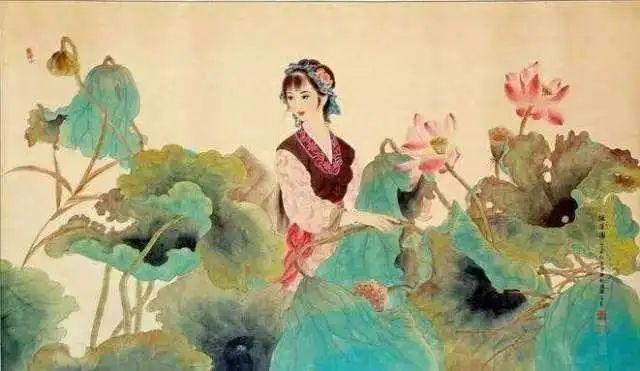
My understanding of this poem has many different things from the two of them, and now I have come to talk about it.
First, say "Recalling Meimei to Xizhou, Zhenmei sent Jiangbei." Mr. You and Ye both interpreted the word "under" in the first sentence as "the bottom" of "Si Jun didn't see the lower Chongqing", so he picked up a small circle. Mr. Ye is divided into both men and women, and Mr. You also divides "memories" and "send" belongs to both men and women. reluctantly. I thought the word "below" was the "bottom" of "Dong Ting Bo Xi Ximing", which was falling. It belonged to plums. Xizhou must be a place where the men and women are commemorative in the poem, and the time of Luomei must be the season when they commemorate them together. These two poems say that a woman recalled Mei Luo Xizhou's commemorative season, and folded a plum blossom to the lover who lived in Jiangbei to evoke his same memories. Sentences are omitted, the subject is not "I" but "she". These two sentences are not men or women's own tones, but the tone of the author or singer.
Maybe someone wants to ask if the first sentence does not be the first four sentences, will it be harmful to the tone of the poem? I said no, it is naturally natural. This kind of syntax is common in the ancient poetry of Yuefu. For example, "The Peacock Flying Southeast" is "Fear of this is not strange", "must be obtained", "if you are temporarily returning because of the fake"; "Nai Xin is in Xianyang", Cai Yan's "Sadness and Anti -Poem" "Desire to discuss ominous" is also a bit, and it is not mouthful to read it in the poem. There is also a more suitable sentence for comparison, that is, the "Wen Huan Xiazhou" of the Qing Shang song "The Beach". It is exactly the same as the "Yi Mei Xia Xizhou" sentence. It is also a folk song of the Southern Dynasties.
Second, "Single shirt apricot red, double crowy duel". "Xizhou Qu" was originally written "Four Seasons Acacia", and Mr. You also said. Some of the sentences in the poem indicate the seasons, such as "Fold Meimei Send Jiangbei", "Out of Red Lotus", "Picking Lotus Nantang Autumn", "Lotus Lotus", "Looking up at Feihong" and "Rolling Trust Sky" Knowing; there are a few words, the meaning of the season is not very obvious, and it is easy to be ignored. The two sentences like this "single shirt" are.
The twelve songs of the stems, the hands are bright as jade. Feng Zikai
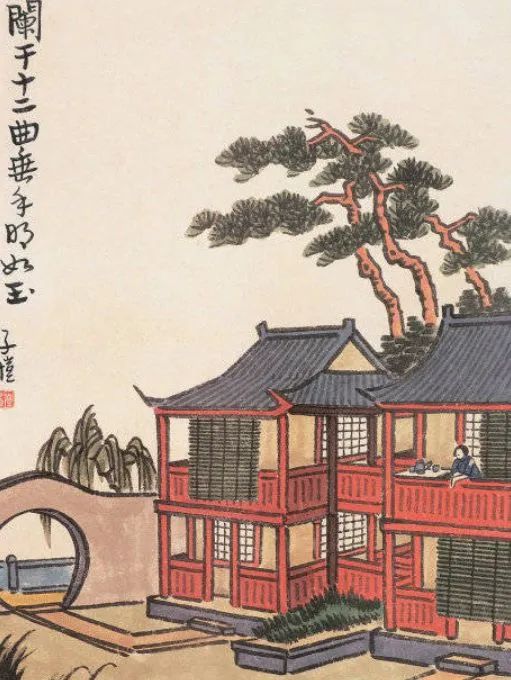
Picture source: www.sohu.com
The above says that this poem is two sentences, which is related to the understanding of these two poems. If you think about the first four sentences, you will unknowingly connect the meaning of the latter two sentences too closely to the above text, thinking that this is a description of the appearance of the Mei Mei people. However, when I was wearing a single shirt, it was already far away from the plum. The plum was the flower of winter and spring. It was completed in the late February of the Yangtze River at the latest, but the single shirt was a clothing of spring and summer. In the same sentence, the word "Xingzi Hong" also saw the season. Isn't it the same time when Xing'er is red? Not only this sentence, why does the "crow chick" in the next sentence indicate the same season? Is it true that the crow is the same time for spring and summer? Therefore, the role of these two poems is not only the protagonist in the poem, but also indicates that the season of spring and summer changes.
Third, say "the sun and the twilight fly to fly, the wind blows the black tree." The words "Bo also fly" also represent the change of time. "Book of Rites · Yue Ling" says "Midsummer Summer", 鵙 is the uncle. This sentence indicates that time has entered May. The following "picking red lotus" is June, "Nantang Autumn" is the early autumn, because there is "lotus flowers", "Lotus Seed" will be August, and "Hongfei Manchi" is a late autumn scene. The time of writing the whole poem is gradual. If there is no "single shirt" sentence and the phrase "Sun Twilight," the "Folding Mei" and "Cai Lian" are separated too far, and the time -sequential narrative after picking lotus will be. No commensurate. The significance of "Niwanbo to fly" is naturally not only the time sequential. "Ancient Weish" said that "Boluo is a good single habitat", Bo Lao is also the Bolao. "Sun Mu" is the time for Bolao to inhabit. The next sentence talks about trees. Tree is a place where the Bola lives. This tree is in front of her door. Continue to be born. " These two sentences are easily misunderstood by readers as idle sentences. In fact, there is no leisure in this poem.
Fourth, "rolling curtains are high at the sky, and the sea water shakes green." The poem is written above the four seasons acacia, but also the day and night acacia. The word "Danity" ended in the day "Dan Lan Dan Tu" ended the day, and a rolling curtain was put on the night. Why do rolling curtain? Naturally, because of the "Crystal curtain outside the golden waves", "open the curtain and want to kiss Chang'e." The sky is clear, and at first glance, it may be that it may be "the curtain opens the best night", and the fiber clouds are four volumes, so the frost of the sky is like the sea. "Sea", there was no sea; "water" was not real water, so green became "empty green". (Is "empty green" fabricated? There are often good words in folk songs. "Sea water shakes empty" can be read without reading.)
But why is it "shaking"? Who has seen the sky shook over? First of all, you must understand that these two sentences are inverted, shaking the curtain shake, when the curtain see the sky is really like a sea of water, the green of the bamboo curtain also adds the green of Tianhai. The feeling disappeared, just feel the sky is high. However, although the Yang Yang is not 像 但, it is like the sea. This sea is more "leisurely" than Zhenhai. At this time, the scene is "the moon is like the water like the water". At this time, the love is "the blue sea and the night heart." Fifth, say "Nanfeng knows what I mean, blow dreams to Xizhou." Let's talk about "dreams" first. This "dream" does not have to dream of dreaming. Dream of daydream is also a dream. The above says "Yi Mei" and "Yi Lang", "Yi" is a dream. "Bowing the lotus seeds" is dreaming, "looking up at Feihong" is also dreaming, and "the sun is dry" is even more dreaming. Xizhou is often in memory, which is often in dreams. "I" in Xizhou can't forget, why can "Jun" forget? "I" is worried about (Dream) Xizhou, why is "Jun" not? Then when the love (dream) Xizhou is the same relationship, the memory (dream) is bitter, and there is also sweetness in suffering. Isn't it worthwhile? Intersection However, Nanfeng should be grateful, and it is what I often blew my dream to Xizhou.
The four sentences at the end of the article are of course the tone of the woman, but these four sentences may be as a narrative of a third party. As a third party's narrative, after all, it is more proper.) From the narrative of the third party to the character in the poem, it is also common in Lefu's poems.
Image source: www.sogou.com
In the end, where is the place where Xizhou is, Jiangnan or Jiangbei -this question: Although Xizhou is not the place where women live in the poem now, or the place where men live now, it is another place. Xizhou is not far from the south bank of the Jiangxi. Since the two paddles can cross, Hongfei can be seen. Can it be said to be far away? "Jiangbei" is not necessarily close! If you are near, there will be no many dreams and sorrows, and there will be no poem. So, where is Xizhou? It is certain that it is not in Jiangnan, and is it not in Jiangbei? Yeah, why is it in Jiangnan that it must be in Jiangbei? Why is it a veritable continent in Jiangzhong?
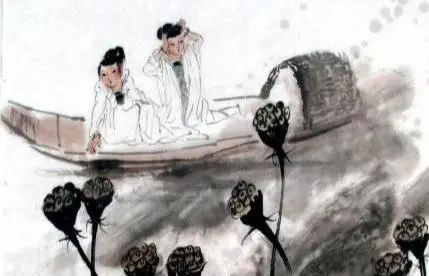
However, in this way, it seems to be escaping the problem, and it seems to be interested in traveling and Mr. Ye's "middle route".
May 25, 1948
Some of the contents of this article are selected from "Tradition and Tradition of Poems"
Yu Guanying wrote and edited by Liu Yuejin Cai Danjun chose, guide
Life · Reading · Xinzhi Sanlian Bookstore Life Bookstore Publishing Co., Ltd.
Note: The picture in the article comes from the Internet. If there is any infringement, please contact us to delete
Famous artists talk poetry
At present, "Words and Sounds", "Poetry Records", "The Culture of Tang Poems", "Words and Selection", "The Emotional and False of the Words", "Vitality of Poetry and the New Principles" "Tradition and Tradition of Poetry" is expected to be published in 2022

"Words and Sounds" Xia Chengzhang compiled and introduced Chen Shuiyun

"Poetry Point will be recorded" Qian Zhonglian's compilation and guide
"The Journal of Tang Poems" Cheng Qianfan compiled and introduced Zhang Bowei
"Writing and Selection" Long Yu was born with Cao Xinhua's selection and guide
"True and Puppet and Gao" of "True and Puppet and Gao", Tang Guizheng compiled and introduced Wang Zhaopeng
"The Vitality of Poetry and the New Principles" Lin Geng compiled and introduced Ge Xiaoyin
"History of Ci and Ci" Zhan Antai compiled and selected and introduced by Peng Yuping
"The Realm of Qi Qi" Miao Miao Miao Yuanglang's selection, Jingshu Hui's reading
"Poetry can Song" Ren Zhongmin's Zhang Zhiwei, Dai Weihua's selection, Guide "Tradition and Tradition of Poetry" Yu Guanying Liu Yuejin, Cai Danjun edited, Guide
Click the applet below to buy books
"107_29313869", "biz_uin": "2398256650", "SKU_ID": "107_29313869", "Source_id": 7, "Source_name": "Dangdang", "Audit_State": 1, "Main_img": "https: // img"1 " />
"107_29327767", "biz_uin": "2398256650", "SKU_ID": "107_29327767", "Source_id": 7, "Source_name": "Dangdang", "Audit_State": 1, "Main_img": "https: // img".zhls.qq.com/3/aa8F0511B0244D2D2D8077CA3017E70CA6.jpg "," Product_name ":" The authenticity and high "of words", "Current_price": 3900, "first_category_id": "0", "appuin": 239825666666666666666666666666666666666666666666566665666566": 0," pid ":" 107_29274909 "," biz_uin ":" 2398256650 "," SKU_ID ":" 107_29274909 "," Source_id ": 7," Source_name ":" Audit_State ": 1," main_imgg "":" https://img.zhls.qq.com/3/a8574cc19d1c43b3bc8a240e8241b898.jpg "," Product_name ":" Current_price ": 4140," first_category_in ":" 0 "," app "," app "," app ".: "2398256650", "Isnewcpskol": 1 " />
"107_29228867", "biz_uin": "2398256650", "SKU_ID": "107_29228867", "Source_id": 7, "Source_name": "Dangdang", "Audit_State": 1, "Main_img": "https: // img"": 1" /> -

- END -
Become the appreciation of the other party, make love often fresh

How to keep love fresh? I believe that this is a problem that many people need to ...
"Red Flower Lang · Good Fish Know the Season" immersed folk food slow variety show officially launched
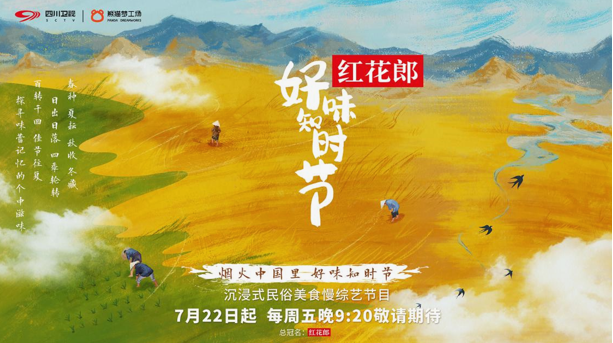
It has begun to come out, and the highly anticipated official announcement of Good...